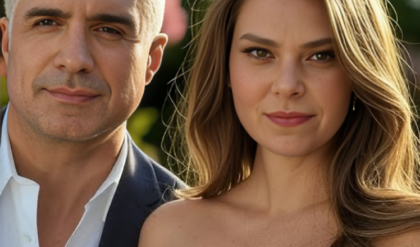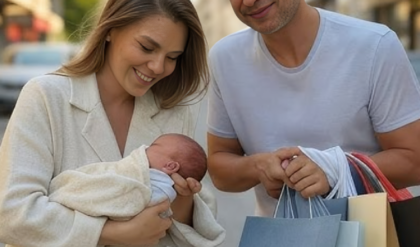Sussexes’s SHALLOWNESS exposed by new Prince William documentary – ‘They show off, he wants to help’
.
.
.
The latest documentary on Prince William has sparked intense debate and scrutiny, casting a revealing light on the contrasting approaches of the Sussexes and the future King. Titled “William: A Modern Prince,” the documentary delves into the lives and motives of the British royal family, exposing what many are calling the “shallow” nature of Prince Harry and Meghan Markle compared to Prince William’s earnest dedication to service and philanthropy.
The documentary highlights Prince William’s steadfast commitment to his royal duties and his genuine desire to make a positive impact on society. From his involvement in mental health initiatives to his advocacy for environmental conservation, Prince William is portrayed as a royal who uses his platform to drive meaningful change. “He wants to help,” the documentary emphasizes, showcasing his deep-rooted sense of responsibility and purpose.
In stark contrast, the film scrutinizes the Sussexes’ activities since their departure from royal duties in 2020. Critics in the documentary argue that Prince Harry and Meghan Markle’s actions often appear self-serving, more focused on maintaining a high-profile lifestyle and capitalizing on their royal connections. The couple’s lucrative deals with media giants and their controversial interviews have been cited as examples of their perceived “showing off.”
The Sussexes’ high-profile ventures, including their tell-all interview with Oprah Winfrey and their multimillion-dollar deals with Netflix and Spotify, have attracted both support and criticism. Supporters applaud their efforts to carve out a new, independent path and raise awareness on important issues like mental health and social justice. However, detractors argue that their actions often seem more aligned with personal brand building than genuine altruism.
The documentary also delves into the couple’s frequent public appearances and their propensity to share intimate details about their royal struggles, drawing attention to what some view as a calculated move to garner sympathy and maintain relevance. “They show off,” a royal insider claims in the film, suggesting that the Sussexes’ priorities lie more in public perception than in the quiet, diligent work often associated with the royal family.
Prince William’s approach, as depicted in the documentary, contrasts sharply with this image. His initiatives, like the Earthshot Prize, aim to address global challenges with long-term solutions, reflecting a vision rooted in service rather than self-promotion. The documentary presents him as a prince who prefers to let his actions speak louder than his words, focusing on sustainable change over fleeting headlines.
The revelations in “William: A Modern Prince” have reignited discussions about the roles and responsibilities of modern royals. While the Sussexes continue to navigate their new lives away from royal duties, Prince William’s unwavering dedication to his role as a future king stands as a compelling narrative of commitment and service.
Ultimately, the documentary invites viewers to reflect on what it means to be a royal in the 21st century. It challenges the audience to consider the balance between personal freedom and public duty, and how each royal chooses to wield their influence. In a world where image and intent are constantly scrutinized, “William: A Modern Prince” offers a thought-provoking perspective on the true essence of royal service.








 Alışveriş turuyla küçük prenses ya da prensine özel bir dünya yaratıyor.
Alışveriş turuyla küçük prenses ya da prensine özel bir dünya yaratıyor.